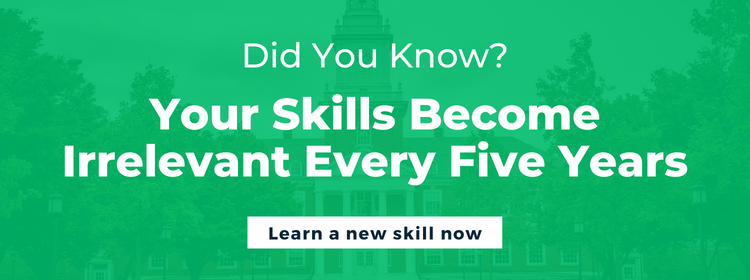A Simple Guide on How to Write a Thank You Email After Interviews

The job industry has become extremely competitive in recent times; professionals have to go a step beyond to secure opportunities. Even if you are confident of clearing the interview and are eagerly waiting for the confirmation, sending a thank you email can increase your chances of getting hired. It is true that sending a thank you email after an interview may seem irrelevant to many professionals—but it can actually be beneficial! Let’s understand how writing a thank you email after interview can increase the chances of being hiring:
Importance of Writing Thank You Email After Interviews
1. An Opportunity to Stand Out
Soft skills, especially enthusiasm and the right attitude, play a key role in an interview. According to the U.S. Department of Labor, employers prefer to hire candidates who show enthusiasm. Skills, training, and experience—even though essential—come next. Writing a thank you email after interview shows enthusiasm and a positive attitude towards the role, giving you an opportunity to stand out in comparison to other candidates. Moreover, if multiple people have applied for a single position, sending a thank you email after the interview might work in your favor as it creates a lasting impression on the interviewer.
2. Shows You Care for the Position
Giving interviews can be a nerve-racking experience:. As such, a lot of people tend to get intimidated during interviews. Even if the interview does not go as well as expected, sending a thank you email after an interview is always appreciated. It shows your eagerness for the opportunity.
3. A Chance to Emphasize You’re a Good Fit for the Job
With multiple candidates interviewing for the same position, the chances of you getting the role become uncertain as the interviewer might overlook your profile. Therefore, it is best to write a thank you email after interviews and give them a recap of your skills, training, and experience. It gives an additional opportunity to explain why you will be a good fit for the role.
4. Opportunity to Overcome Objections
 If you couldn’t answer any question correctly in the interview, research the answer after the interview and add it to the thank you email. This demonstrates dedication and sincerity. Moreover, ask any follow-up questions that might have been forgotten during the interview.
If you couldn’t answer any question correctly in the interview, research the answer after the interview and add it to the thank you email. This demonstrates dedication and sincerity. Moreover, ask any follow-up questions that might have been forgotten during the interview.
5. A Great Opportunity to Network
Sending a thank you email post-interview is one of the best ways to build professional connections with hiring managers and expand one’s professional network. Even if the chances of getting the job are slim, you can connect with the hiring manager, who might reach out for other job opportunities.
6. Exhibits Professional Courtesy Toward the Interviewer
Last but not least, sending a thank you email after interviews is one of the best ways to express courtesy or gratitude toward the interviewer.
ALSO READ: Dos and Don’ts: How to Ask for a Letter of Recommendation
Quick Tips When Writing a Thank You Email
Now that you know why writing a thank you email after the interview is so important, here are some tips to keep in mind before you start writing:
1. Thank the Interviewer
Start by thanking or appreciating the interviewer for their time. You can also thank them for their supportive or kind gesture during the interview. For example, giving you ample time to think or allowing you to answer a question twice.
2. Reiterate Interest in the Job and Company and What You Bring to the Table
After the interview, you will better understand the job’s role and responsibilities and the company’s expectations. The thank you email after interviews can be a great opportunity to remind the hiring manager about your skills and qualifications. It subtly reminds the hiring manager why your profile is an ideal fit for the job.
3. Add a Personalized Touch
Avoid writing a general thank you email after interviews; add a personal touch instead. Illustrate any observations made during the interview—such as the work culture, how the organization looks to grow, etc.
4. Start With a Simple Subject Line
It is important to keep the subject line short and to the point. It should clearly communicate the purpose of writing the email. For example: “Thanks for meeting with me,” “Thank you for your time (name),” or “Thank you for the interview.”
Sample Thank You Email After Interview
Subject line: Thanks for meeting with me/Thank you for the interview
Hello [Interviewer Name],
Thank you so much for discussing the [position name] role at [company name] with me. I appreciate your patience throughout the interview. Learning more about the team and your industry was a pleasure. I understand you are looking to hire an experienced resource for this position. That being said, I have over five years of experience in this industry/similar role and believe I would be a perfect fit for this role. Moreover, my skills and experience in [insert skills and experience] could be an added advantage.
I am excited about this opportunity and look forward to hearing from you about the next steps involved in the interview process. Please let me know if I can answer any additional questions in the meantime.
Best regards/Sincerely,
[Your Name]
ALSO READ: 5 Best Questions to Ask Interviewers in a Job Interview
FAQs
1. Thank You Email: What is the Ideal Length?
The thank you email after interviews should be brief. It shouldn’t exceed more than 250 words. Know the points you must mention and restrict each point to one paragraph. Keep the message short—not more than three to four paragraphs or one page in length.
2. Is It Better to Send a “Thank You” Email or a Note/Letter?
While a “Thank You” note or letter provides a personal touch, an email is more efficient, fast, and has a better chance of reaching the interviewer. Hence, sending a thank you email after the interview is better.
3. What is the Purpose of a Thank You Email After Interviews?
The purpose of writing a thank you email after interviews is to show sincerity and appreciate the time and effort of the interviewer. It also serves multiple purposes, such as reminding the interviewer why you are a good fit for the role. It can also be a way to get an answer to a question you might have missed in the interview.
4. Should I Send a Thank You Email After Every Interview?
Yes, sending a thank you email is important after an interview. If you have multiple interview rounds with a company on the same day, and the interviewer is the same, you can send an email after all the rounds are over.
5. How Soon Should I Send a Thank You Email After Interviews?
It is best to send a thank you email within 24 hours after the interview. If it was a morning interview, send the thank you email on the same day during office hours. However, if it was at a later time of the day, you can send it the next morning. email can be sent the next morning.
6. What Should I Include in a Thank You Email After Interviews
A thank you email after interviews should be short and crisp. It must include a small note thanking the interviewer(s) for your time. You can also add a small summary of your qualifications for a recap and leave a Call to Action (CTA) at the end. This should prompt the interviewer to proceed with the next steps in the hiring process.
7. Do Thank You Emails Really Make a Difference?
While not writing a thank you email after interviews do not lead to rejection of candidature, writing one can make a significant impact. It demonstrates a positive attitude and willingness to work at the organization.
To conclude, writing a thank you email after interviews can positively impact your chances of being hired. However, writing a thank you email alone won’t suffice. You need to upskill yourself and learn industry trends to perform well in the interviews and get well-paying opportunities. Emeritus offers a variety of online courses in different fields that can help you learn relevant practical skills and industry insights. Explore the diverse range of courses Emeritus offers and boost your chances of getting hired!
Write to us at content@emeritus.org



